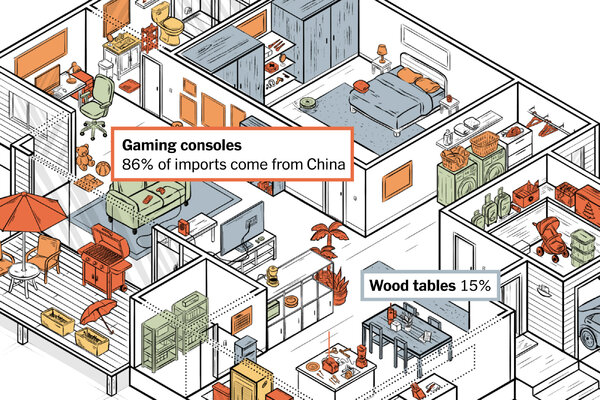Articles in this Cluster
27-05-2025
US President Donald Trump has agreed to extend trade talks with the European Union until July 9 after threatening to raise tariffs on EU goods to 50%. Initially, Trump had set a tariff rate of 20% on most EU goods, later reduced to 10%. The EU has responded positively, with European Commission chief Ursula von der Leyen stating that the bloc is "ready to advance talks swiftly and decisively." The move comes after the EU threatened to introduce its own tariffs on US goods, valued at €18bn, and is currently consulting on additional measures worth €95bn.
27-05-2025
European markets rebounded on news that U.S. President Donald Trump delayed imposing 50% tariffs on the European Union, with the Stoxx 600 index rising 0.99%. However, analysts warn that optimism may be premature, as the EU is likely to impose countermeasures against the U.S. if a deal is reached. Meanwhile, European companies are already responding to the potential tariffs, with France securing a deal for Vietnam to buy 20 Airbus jets and Swedish automaker Volvo Cars announcing 3,000 job cuts due to pressure from Trump's tariffs on China.
27-05-2025
US President Donald Trump has agreed to postpone imposing 50% tariffs on goods from the European Union until July 9, allowing more time for trade negotiations. The decision came after a phone call with EU Commission President Ursula von der Leyen, who requested an extension to the original June 1 deadline. Trump had previously threatened to introduce the tariffs, sparking fears of a trade war, but has now delayed their implementation to allow for further talks. The EU has welcomed the decision, with Irish Premier Micheal Martin saying the bloc has been engaging "sensibly" with the US administration.
27-05-2025
President Trump has imposed a series of tariffs on various countries, including China, the European Union, and Britain, in an effort to rewire the global economy and address trade deficits. The tariffs have caused market volatility and tension with US trading partners. Trump has used tariffs to try to force companies to manufacture products in the US, create jobs, and raise wages, but economists argue that these goals are contradictory. The tariffs are paid by US importers, who may pass the costs on to consumers or absorb them themselves. The US and China had agreed to a 90-day pause on tariffs, but Trump threatened to impose steeper tariffs on the EU before backing down. The tariffs have led to concerns about price increases and product shortages.
27-05-2025
China's industrial profits rose 3% in April, driven by government measures supporting the private sector, despite US tariffs and deflationary pressures. Cumulative profits in the first four months of the year grew 1.4% year-on-year, with high-tech manufacturing and household appliances seeing significant improvements. State-owned firms saw a 4.4% decline in profits, while private enterprises and those with foreign investments saw profits rise 4.3% and 2.5%, respectively. Certain industries, such as the auto and apparel sectors, faced challenges, but overall industrial output expanded 6.1% in April, outpacing retail sales growth.
27-05-2025
Asia-Pacific markets mostly fell on Tuesday as investors assessed the global trade climate after U.S. President Donald Trump deferred 50% tariffs on European Union imports. Japan's Nikkei 225 fell 0.19%, while South Korea's Kospi declined 0.49%. Mainland China's CSI 300 index retreated 0.56%, and Hong Kong's Hang Seng Index was down 0.3%. In contrast, Australia's S&P/ASX 200 added 0.33%. U.S. futures jumped as investors welcomed Trump's postponement of tariffs, with Dow Jones Industrial Average futures rising 1%. Asian currencies rallied as the dollar weakened on fears of ballooning U.S. debt. Shares of Chinese bubble tea companies gained sharply, while Meituan and BYD shares declined due to increased competition and price cuts, respectively.
27-05-2025
The US-China trade war poses a significant risk to China's economy, particularly in terms of job losses. China's export-reliant economy is already struggling due to a property slowdown and the COVID-19 pandemic, with a high unemployment rate among young workers. If US tariffs remain at 30%, China's exports to the US could fall by half, resulting in up to 6 million manufacturing job losses, and potentially surging to 9 million if the trade war resumes. China's economy has been expanding at a slower rate than during Trump's first term, and the government is struggling to create new jobs. The youth unemployment rate is in the double digits, and millions of new college graduates are entering the labor market. Even those with jobs are in a precarious position, with many companies turning to gig workers instead of offering full-time employment. China's government is trying to mitigate the impact by preparing measures to keep employment stable, but the situation remains challenging.
